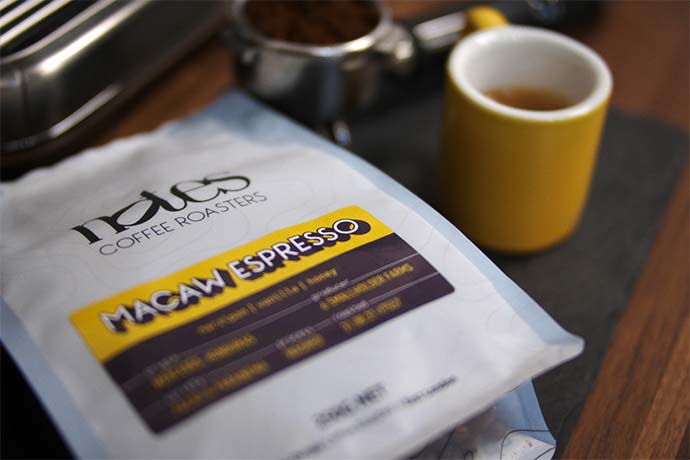El Paseo Decaf
Chocolate, Cherry, Vanilla
A smooth medium roast with hints of cherry and vanilla, perfectly balanced by its rich chocolate undertones. Fancy a comforting cuppa? This one ticks all the boxes. A juicy blend of cherry and vanilla with a chocolatey finish. This coffee is like a warm hug on a chilly day. It's all about the comfort.
Coffee info
Varietal
Castillo
Process
Anaerobic
Elevation
1700 - 1800 ft
Region
South America
Country
Colombia
Roaster notes
The El Paseo farm is located in the municipality of Buesaco, Nariño. It spans 7 hectares of land where the Castillo variety coffee is cultivated at an altitude between 1,700 and 1,800 meters above sea level. The farm has an average production of 16,000 kg of dry parchment coffee. Huver Castillo is a second-generation coffee farmer who has been in the industry for 20 years. Together with his wife and son, they have embraced the adventure of venturing into the production of specialty coffees. This idea emerged as a response to the crisis that the industry faced in 2014, which resulted in a drop in prices and made their work unviable. They started incorporating protocols into post-harvest handling to enhance the organoleptic characteristics of their coffee. The journey toward producing differentiated coffees was not easy; despite starting the process in 2015 and carrying out multiple experiments, Huver did not initially see positive results. However, their perseverance and discipline paid off, and by 2018, they had produced their first batch of coffee. With its outstanding cup qualities, this achievement motivated Huver to continue his investigation of different fermentation variables and types. They made attempts to emulate protocols from industries such as wine, cheese, and beer to establish methods that ensure consistency and high-quality in their coffee. This approach enables them to offer customers a unique and unforgettable experience. To this day, they continue to improve their processes, always aiming for excellent quality coffee as a testament to the dedication and love of Huver and his family. The decaf process involves using sugarcane ethyl acetate (E.A.), also commonly referred to as natural decaffeination. The process begins with the fermentation of molasses derived from sugarcane to produce ethanol. This alcohol is then mixed with acetic acid to create the compound ethyl acetate. In Colombia, where sugarcane is abundant, it is economically beneficial to use this plentiful resource alongside the coffee industry. E.A. can also be found in wine, beer, fruits, vegetables, and other foods and beverages. Upon receipt, the coffee is subjected to water and steam treatment. This increases the bean's moisture content and swells it to facilitate caffeine extraction. At this point, an E.A. wash is applied to dissolve the caffeine. The beans are then rinsed with water and steam to clean their innermost parts. The beans are finally dried until they achieve moisture levels similar to those before the process. This method avoids excessive heat or pressure, which could significantly alter the cellular structure of a green bean. One downside of this process is that the beans, exposed to steam, tend to age more quickly (both as roasted and green) than those processed using standard methods. It is not uncommon for the roasted beans to \"sweat\" within a few days of being roasted. This usually happens many more days post-roast in non-decaffeinated coffee.
Roaster


Notes Coffee Roasters hit all the right ones. As their motto says: “High Grade, Sourced at Origin, Lovingly Roasted in East London!” What more could you ask for? Notes Coffee Roasters aren't your typical roastery. They only work with single origin coffee and never dabble in blends. This means their portfolio of coffees are singular, are the efforts of hard working farmers at origin are rewarded. Expect delicate coffees and myriad of flavours, and know that your morning brew is helping contribute to the maintenance and continued improvement of harvest at source. Now that’s something we hear (and taste) on repeat.
